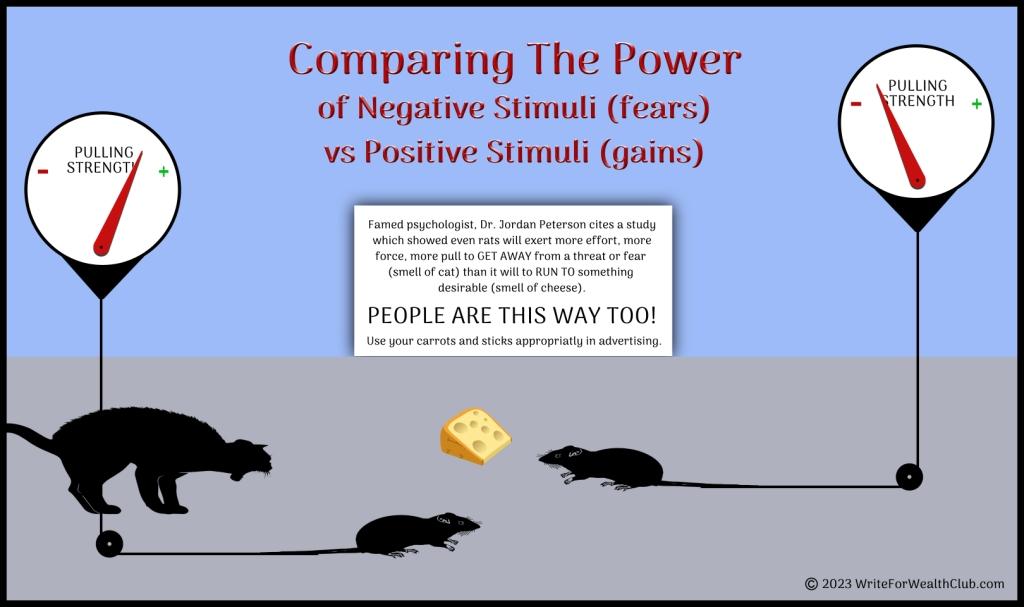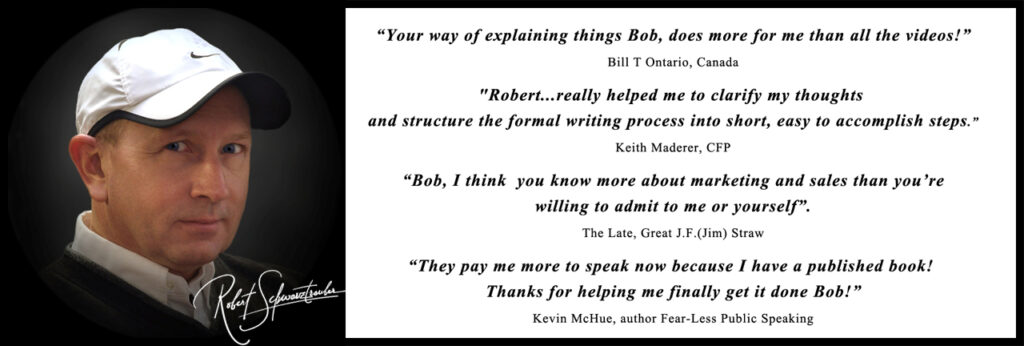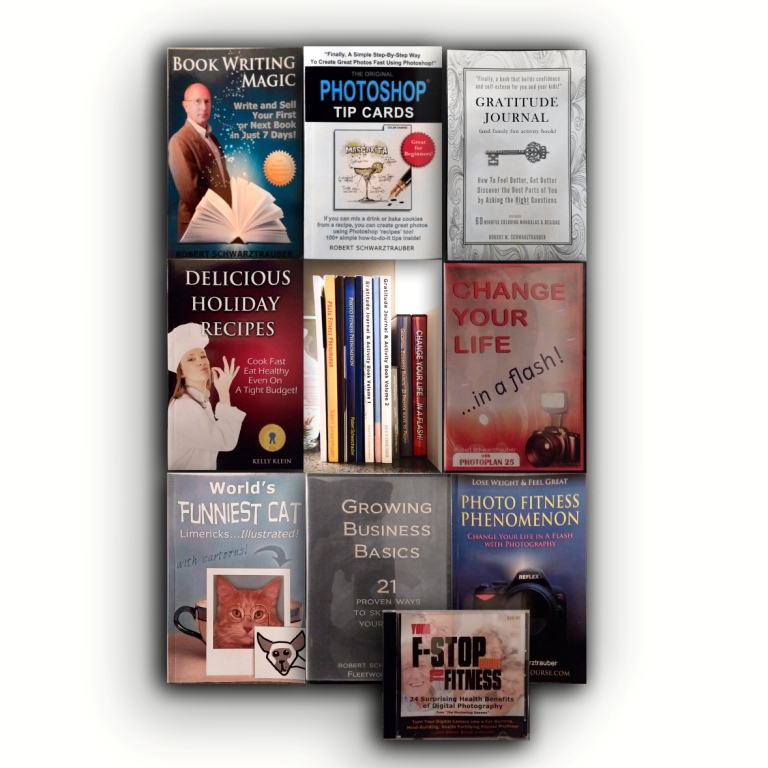
Playing on Fear and Greed: The Fine Line Between Persuasive and Manipulative Headlines
Ever wonder what captures attention best in headlines?
Wonder what forces prompt action in your favor after you’ve gained that attention?
Today, let’s discuss two powerful forces commonly used in marketing which drive people to do what they do.
Which in our case, is buy something!
Today’s topic is the two powerful psychological human motivators of FEAR (of loss or danger) and GAIN (of some desired prize).
Why Fear and Greed Work
Loss aversion is a powerful bias – people are far more motivated to avoid losing something than gaining something equivalent. Fear of loss is a very strong influencer.
Fear appeals can effectively capture attention by sounding urgent and threatening. Our human biology is hardwired to alert us to signs of danger. However, extreme fear can backfire and cause the message to be rejected or ignored. Moderate fear tends to work best.
The famous headline, “What NEVER to Eat on an Airplane” by Marty Edelston of Boardroom Inc., was the most opened piece of mail sent by Boardroom for over 3 years.
Marty effectively used people’s fear of eating the wrong thing and becoming sick to get his envelopes opened. Curiousity was a major player here too. Both for health reasons and their ego, people fear doing the “wrong” thing.
Gains claims need to seem achievable, yet meaningful enough to be worth the reader’s effort/investment. If too good to be true, gain claims can breed skepticism.
Marketing expert Dan Kennedy effectively used, “The Secret of Making People Like You” to entice readers. There is a promise of gain which is hidden behind some “secret”. Here, Dan piques curiousity with that powerful word “secret” while offering a desired gain.
While a headline such as, “Lose thirty pounds in just one week” would raise significant skepticism. And probably inspire a lawsuit or undesireable government action. Beware.
Claims of gain work best when backed up by true testimonials or scientific proof.
The Power in Each
Psychology studies and marketing tests both strongly suggest that loss/fear is the stronger short-term motivator, while gain keeps people more consistently engaged long-term.
The Ethical Line
These two mechanisms walk an ethical line if they manipulate readers or obscure lack of real value. Respected brands focus first on creating outstanding value and meaning for customers in ethical ways. Psychology plays a role but should support value, not replace it.
Best results are acheived when you keep the focus on serving over “getting” or manipulating people with baseless claims.
Creating Effective Headlines
Gain-Driven:
- Focus on benefits.
- Use positive action words like “discover”.
- Offer solutions to frustrations.
- Inspire curiosity.
Fear-Driven:
- Consider risks/costs of inaction.
- Use caution with strong fear appeals.
- Play to loss aversion, but don’t exaggerate or manipulate.
For a list of the best 40 words to use which inspire action, refer back to this article on famed copywriter, the great Drayton Bird:
https://writeforwealthclub.com/40-magic-words-that-make-money/
Aim to deliver honest value and respect for your readers above all else. Psychology can help, but the most sustainable marketing builds trust through integrity.
This article is by no means complete instruction on attention getting or producing actionable copy, but simply a comparison of two powerful forces which are often used by copywriters and marketers in their advertising. We’ll talk more about other effective headline and copy tactics in future posts.
But here’s the thing. Knowing all the strategies and tactics of good headines and copy will still produce poor results unless you are speaking directly to the emotional concerns of your specific audience.
The Copywriter’s Persuasion Toolkit is one of the best tools around for peering deep into your specific propect’s mind and soul. For uncovering their SPECIFIC concerns, buyer hotbuttons, and addressing the real, driving reasons behind why they will buy.
Do you have your Toolkit yet?
Are you using it to speed up your workflow, or to increase your open rates, or sales?
It’s a very modest investment that, if used, could fund a lot of steak dinners for you and your family.
No risk to try it. If you think it sucks, simply ask for your money back. You would be the first though!
Fear of Loss and Desire for Gain.
Try to work these powerful psychological factors of fear of loss, or desire for gain into your next promotion.
-Robert Schwarztrauber
P.S. The Copywriter’s Persuasion Toolkit as of now, is still available at the Beta testing pricepoint. But I expect it won’t be for much longer as word of it’s appeal spreads. This might be a good time to claim your copy. Or don’t. Just know that you’ll be competing then with copywriters who are using it. And they’ll have a distinct advantage. It’s up to you, I”ll sleep easy regardless of your decision.





